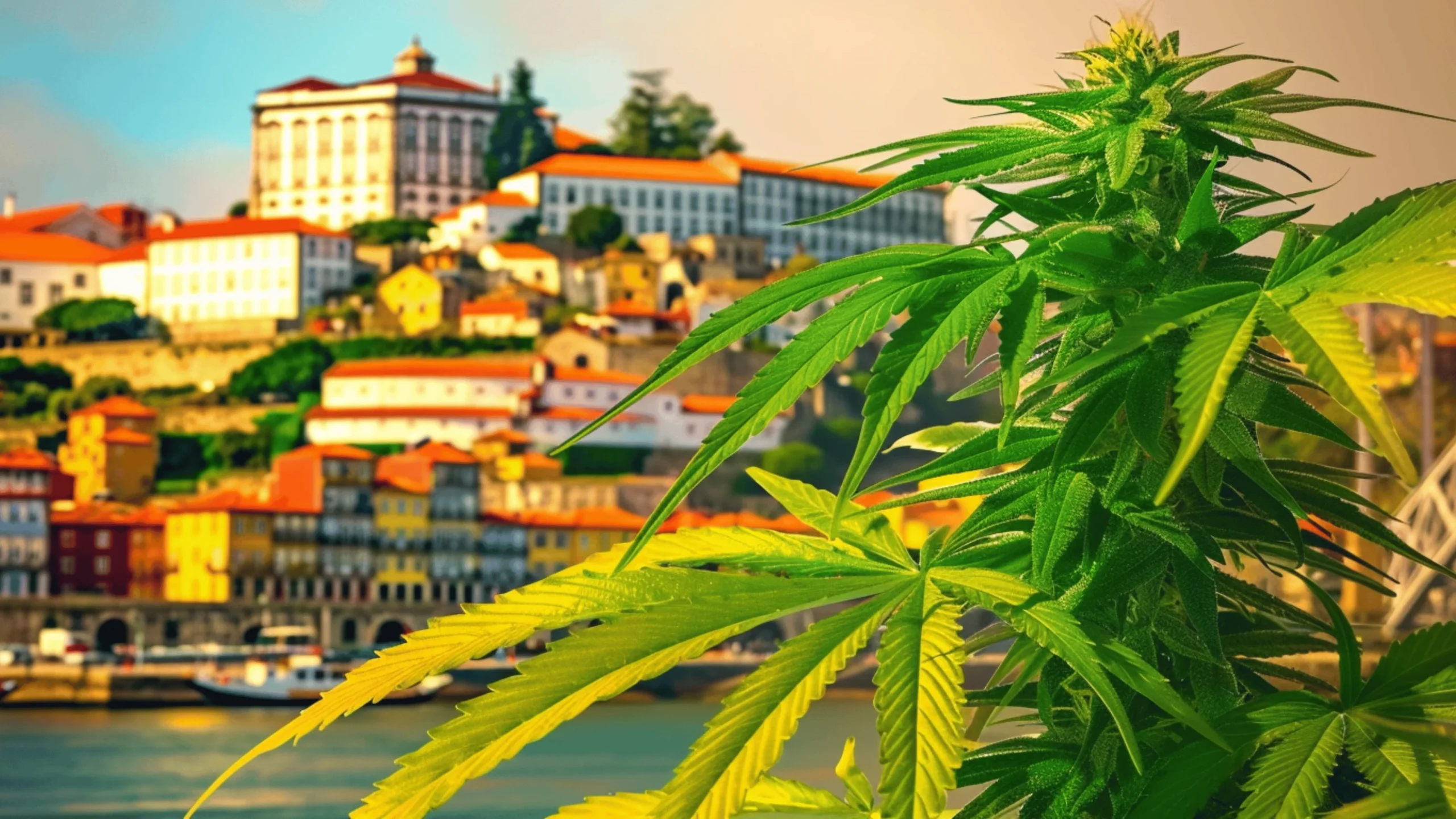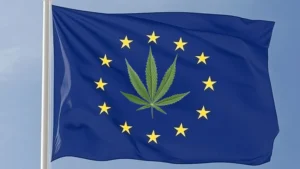CBD is fastly gaining popularity in Portugal, particularly due to its potential health benefits and growing global reputation – so, is CBD legal in Portugal?. Cannabidiol, commonly known as CBD, has made a significant impact on the health and wellness market, becoming inevitable in many people’s daily routines. However, despite its rising popularity, there is still a considerable amount of confusion surrounding the legal status of CBD in Portugal. Yes, CBD oil is legal in Portugal. While lots of people argue that CBD oil is a part of the medical cannabis industry meaning that its usage requires a prescription, that perception is not quite right. CBD oil is completely legal in Portugal unless the THC content in it is below 0.2%.
Many potential market entrants are uncertain about where to purchase CBD products legally and what regulations govern its sale. Since its introduction into the health market, CBD oil has been used for a variety of health-related purposes, further increasing interest in this compound. As the demand for CBD continues to rise in Portugal, understanding the legal landscape is crucial for CBD businesses looking to enter the CBD market. Understanding the legal framework of CBD oil in Portugal is essential for making informed decisions and ensuring compliance with local regulations.
A brief history of hemp in Portugal
Hemp has a long and famous history in Portugal, dating back to the 2nd century BC. Initially introduced during this time, hemp cultivation gained significant strength in the 8th century, eventually becoming an integral part of Portuguese society.
The Portuguese colonizers encountered hemp again in Africa and India during the 15th century, where they learned about its diverse applications, including the production of tea, cords, nets, sails, and clothing. The versatility of hemp made it an essential resource, and by the 16th century, the Portuguese even brought the plant to their new colonies in South America. Hemp became so vital to the economy of Portugal that even after a destructive war with Spain, King John IV ordered the establishment of the Royal Linen and Hemp Factory. This initiative aimed to boost hemp production and help rebuild the nation’s fleet by providing the necessary materials for sails and ropes.
The historical significance of hemp in Portugal underlines its deep-rooted presence in the country, which continues to influence its contemporary legal landscape concerning CBD. For CBD market entrants looking to explore the CBD market in Portugal, understanding this historical context is crucial. It highlights the long-standing relationship between Portugal and hemp, which has shaped the legal frameworks and cultural acceptance of hemp-derived products like CBD. As the CBD industry evolves, this historical perspective provides valuable insights into the potential opportunities and challenges in the Portuguese CBD market.
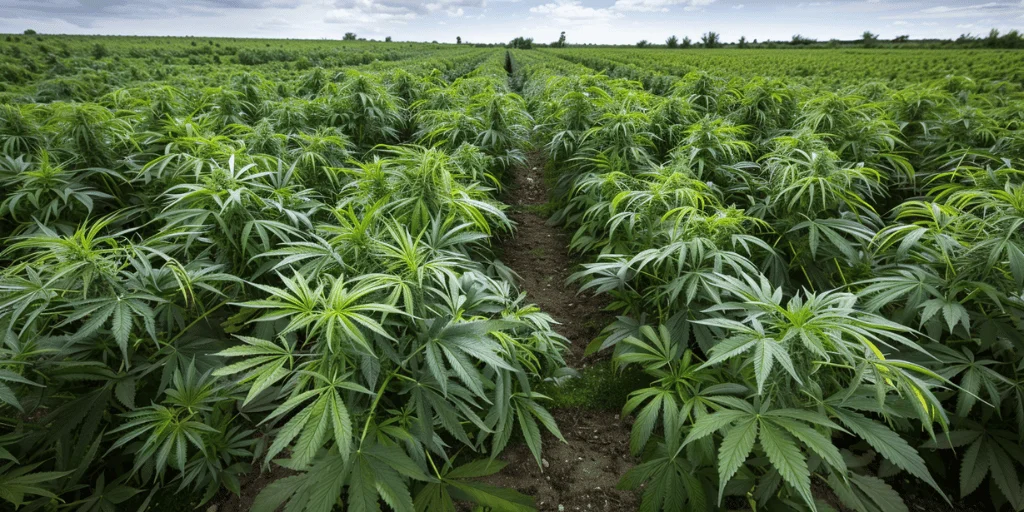
Is hemp cultivation legal in Portugal?
In Portugal, cultivating cannabis sativa plants for personal use, whether it’s hemp or marijuana, is not legal. This distinction is important, especially when it comes to the industrial cultivation of these plants. Marijuana, known for its higher THC content, falls under stricter regulations, while hemp, which contains less than 0.2% THC, is the only type of hemp that can be legally cultivated in Portugal.
Companies looking to grow hemp in Portugal must first secure a permit from the Ministry of Agriculture. This process is not only essential for legal compliance but also for participating in the fastly growing CBD industry. Furthermore, businesses must be prepared for unannounced inspections throughout the year, which are conducted to ensure that the hemp crops remain within the legal THC limits.
These regulations highlight the importance of maintaining strict loyalty to the legal standards set by the Portuguese government. For entrepreneurs and investors, understanding and navigating these regulations is critical to establishing a successful CBD business in Portugal. Compliance with these laws not only defends the business but also builds credibility and trust with consumers who are increasingly aware of the legalities surrounding CBD products. By staying informed and prepared, businesses can take advantage of the growing opportunities in Portugal’s CBD market while ensuring they operate within the bounds of the law.
The legal status of CBD in Portugal
CBD is legal in Portugal, particularly for medicinal uses, and products containing less than 0.2% THC are generally permitted. However, the legal landscape surrounding CBD has evolved significantly in recent years. Up until 2018, CBD was completely legal in Portugal without many restrictions. However, that year marked a significant change when Portugal aligned with the European Union’s novel food regulation, which led to the banning of CBD as a food product. At the same time, 2018 also saw the legalization of medical cannabis in Portugal, allowing patients to purchase cannabis-based products from pharmacies with a prescription from a licensed doctor.
Patients eligible for a medical cannabis prescription in Portugal typically suffer from conditions such as nausea caused by chemotherapy, chronic pain, post-traumatic stress disorder, epilepsy, and other serious health issues. Despite this, there is still some confusion among the public regarding the legality of CBD products. Many people mistakenly believe that all CBD products fall under the category of medical cannabis, requiring a prescription for purchase. However, CBD products with less than 0.2% THC content do not require a prescription and are legally available, although some consumers remain cautious. To avoid any potential legal issues, some individuals prefer to purchase CBD products that are completely free of THC, such as broad-spectrum CBD oils.
For investors in the CBD market, understanding these nuances is important for navigating the legal framework in Portugal. It is essential to stay informed about the latest regulations and consumer preferences, particularly as the market continues to evolve. By offering products that comply with the legal standards and correspond to the needs of cautious consumers, businesses can position themselves effectively in Portugal’s growing CBD industry.
2025 update
As of 2025, there have been no significant changes to the legal status of CBD in Portugal. CBD products derived from industrial hemp containing less than 0.2% THC remain legal and do not require a doctor’s prescription. The sale and distribution of CBD are regulated, and products must comply with safety and labeling standards. It’s essential for businesses to stay informed about the current regulations to ensure compliance.
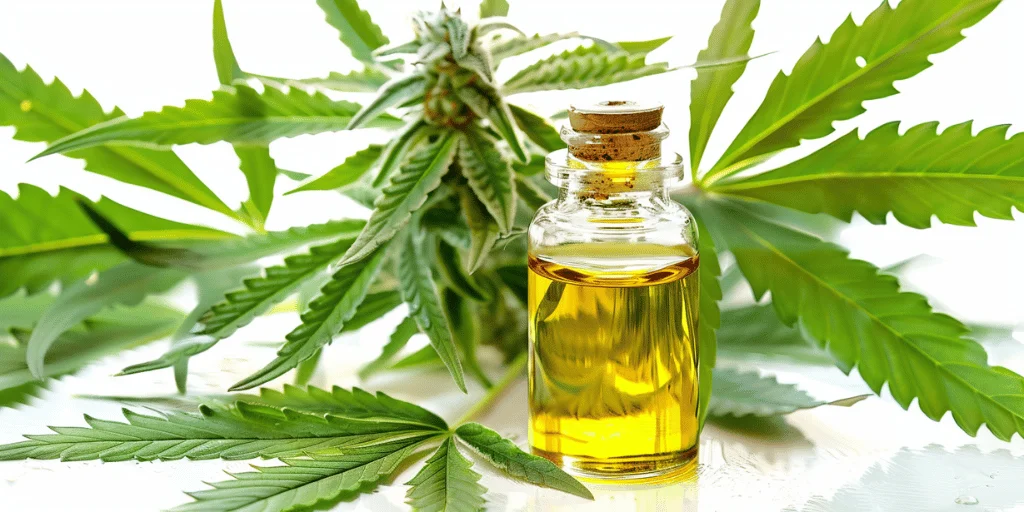
Is THC legal?
In 2001, Portugal made headlines by passing Law 30/2000, which decriminalized the consumption and possession of all drugs for personal use, including cannabis. This revolutionary law positioned Portugal as one of the first countries in the world to adopt such a progressive approach. The primary aim of this legislation was to address the country’s escalating drug problem, which had been identified as the most pressing social issue in Portugal by a 1997 study. The impact of this law was deep – by 2009, drug usage had dropped truly, moving from the top of the list of social problems to the 13th position. This shift demonstrated the effectiveness of treating drug addiction as a public health issue rather than a criminal one.
Under this law, individuals caught possessing or using small amounts of drugs, including cannabis, are no longer treated as criminals but are instead referred to the local Commission for Dissuasion of Drug Addiction. This commission consists of three experts: one legal expert and two others who are either medical professionals, psychologists, social workers, or sociologists. The commission’s role is to assess whether the individual requires treatment and to offer appropriate support if necessary. The law defines a “small quantity for personal use” as an amount sufficient for individual consumption over a 10-day period.
For those interested in the CBD industry in Portugal, understanding the context of this legal framework is important. Although CBD and other cannabis-derived products are regulated differently from recreational cannabis, Portugal’s decriminalization policy highlights the country’s progressive attitude on drug-related issues. This legal environment has indirectly influenced the development of the CBD market by fostering a more open and health-focused approach to cannabis products. Entrepreneurs and investors can benefit from this understanding by aligning their business strategies with the values of harm reduction and public health, which are central to Portugal’s drug policy.
Drug decriminalization in Portugal
Since the implementation of drug decriminalization, many people worldwide have celebrated its success, and rightfully so. The decriminalization process in Portugal has indeed proven to be effective in addressing drug-related issues, shifting public perception, and significantly reducing the stigma associated with drug addiction. As a result, drug addiction, once considered the country’s most pressing social problem, has dropped to being only the 13th most important issue, demonstrating the profound impact of this policy.
This success has inspired many other countries to consider adopting similar approaches, recognizing the benefits of viewing drug use and addiction through a public health lens rather than a purely criminal one. However, despite the clear achievements of Portugal’s decriminalization policy, there remains a great deal of misinformation about the legal status of drugs in the country. It’s important to clarify that while drug use and possession for personal use are decriminalized, they are not fully legalized. This means that although individuals caught with small amounts of drugs are not subject to criminal prosecution, they are still required to undergo an evaluation by a specialized commission to determine if they need treatment or other forms of support.
Selling CBD in Portugal
If you’re starting a CBD business in Portugal, there are several essential factors to consider to ensure your company complies with local and EU regulations. First and foremost, it’s essential to partner with accredited and trusted suppliers who are informed in the legal requirements of the CBD industry. One of the most important regulations to be aware of is that the CBD must be derived from hemp containing less than 0.2% THC. This threshold is critical for ensuring that your products are legally compliant in Portugal and across the European Union.
Additionally, you must carefully assess the extraction methods used by your suppliers. Not all extraction processes are legal within the EU, and using an unapproved method could result in legal complications for your business. It’s also important to be cautious of any partners or websites that make exaggerated health claims about their CBD products. Such claims are often not supported by scientific evidence and may be legally questionable, potentially putting your business at risk.
For those seeking a reliable partner in the CBD industry, working with a CBD manufacturing expert like Hempo Solutions could be a wise choice. As a German company specializing in the bulk CBD, white label CBD, and private label CBD, Hempo Solutions is well-equipped to navigate the complex regulatory landscape. We maintain the importance of staying current with all relevant regulations and are committed to providing prompt and professional service to our clients. By choosing a reputable supplier, you can focus on building a successful CBD business in Portugal, confident that your products meet all legal standards and market expectations. For more information, you can explore our website or reach out directly to learn how we can support your business.
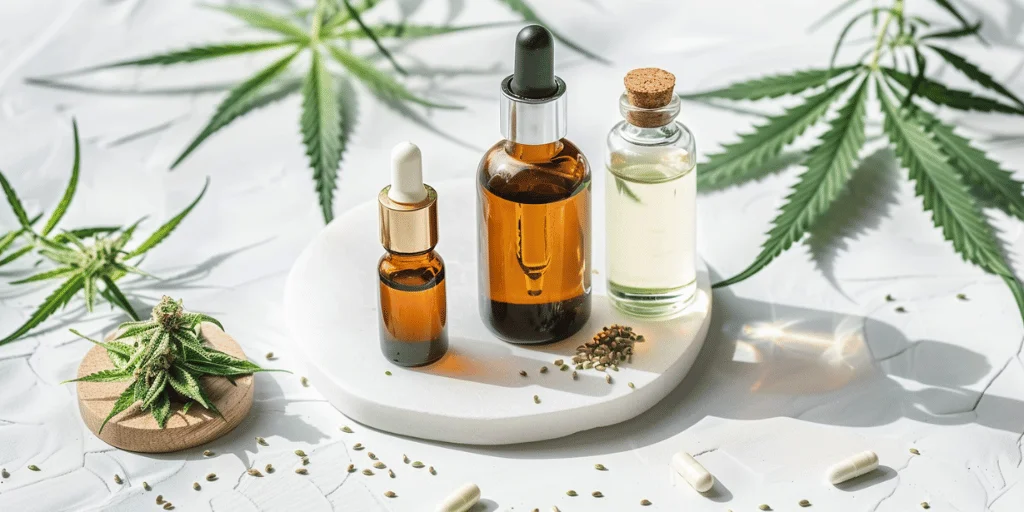
The future of CBD in Portugal
The future of CBD in Portugal appears promising. As the market for CBD continues to grow and consumer demand increases, several significant developments are taking place that could lead the way for a more accessible and booming CBD industry in Portugal. Notably, two Portuguese companies have partnered with Canadian firms to strengthen the supply chain and meet the rising demand for CBD products. Holigen, one of these companies, has ambitious plans to cultivate over 500,000 kilograms of medicinal cannabis per year, positioning itself as a major player in the industry. Similarly, Gaia Pharma has joined forces with Aurora Cannabis Inc., a well-known Canadian company, to produce a range of CBD products.
These partnerships reflect the increasing investment in Portugal’s CBD sector and the growing interest among consumers. As more companies enter the market and the industry expands, it is likely that the legal landscape in Portugal will continue to evolve. This could lead to the relaxation of current regulations, making it easier for consumers to purchase CBD products and for businesses to operate within the country. For entrepreneurs and investors, these developments signal a strong potential for growth and opportunity in the Portuguese CBD market. By staying informed about these trends and aligning with established players in the industry, businesses can position themselves to capitalize on the expected easing of legal restrictions and the expanding consumer base. The future of CBD in Portugal holds significant promise, and those who navigate the current challenges successfully may find themselves at the front line of a thriving market.
A summary
So, is CBD legal in Portugal? The answer is yes, and Portugal’s CBD regulation is considered quite liberal compared to many other countries. To understand this better, it’s essential to look at the broader legal context in Portugal. The country made headlines in 2001 when it decriminalized the possession and use of all drugs, including cannabis. This decriminalization means that while possession and use of cannabis are not criminal offenses, authorities can still issue fines and require individuals to attend counseling sessions. In 2018, Portugal further advanced its attitude by legalizing medical marijuana, which also clarified the legal status of CBD oil and similar products.
Under the current regulations, CBD products are legal in Portugal as long as they contain less than 0.2% THC, and no prescription is needed to purchase them. This approach to CBD regulation reflects the country’s progressive attitude towards hemp-related products and offers a favorable environment for the growth of the CBD market.
At Hempo Solutions, we believe that CBD products have a promising future not only in Portugal but also throughout the European Union. The combination of growing consumer interest and a supportive legal framework makes Portugal an attractive market for CBD entrepreneurs and investors. If you have more questions about the legal status of CBD oil in Portugal or are interested in exploring our range of products, we encourage you to reach out to us. We’re here to help you navigate the opportunities in this expanding market and provide you with the products and information you need to succeed.
